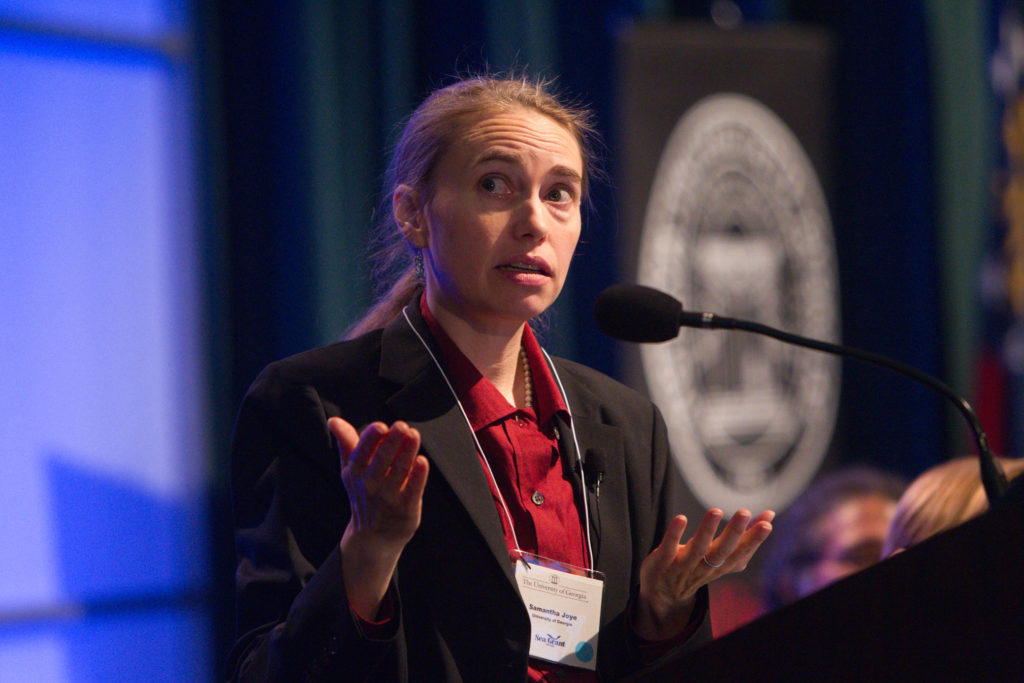Samantha Joye, professor of marine sciences, has been named the Athletic Association Professor in Arts and Sciences.
The professorship, recently approved by the University System of Georgia Board of Regents, is funded by the UGA Athletic Association.
“Mandy Joye’s leadership in responding to the Gulf of Mexico oil spill has provided invaluable insights into one of the nation’s worst environmental disasters,” said Garnett S. Stokes, dean of the Franklin College of Arts and Sciences. “Her work underscores how basic research can be applied to some of society’s most pressing issues and brings distinction to the Franklin College and the entire university.”
Joye came to UGA in 1997 and has extensively studied the natural seepage of oil and gas in the Gulf of Mexico for the past 15 years. Shortly after the Deepwater Horizon oil rig exploded and sank in April 2010, her research team discovered vast plumes of oil and gas some 1,000 to 1,300 meters below the surface. On later research expeditions to the Gulf, she documented oily material on the seafloor and its consequences to the Gulf’s invertebrates, sea fans and corals. Joye has led three expeditions to the Gulf in the past year alone and continues to measure the activities of microbes breaking down the oil and to assess other variables such as depleted oxygen concentration and other environmental impacts of the hydrocarbon release.
Joye’s expertise has been sought by state officials, the National Oceanic and Atmospheric Administration, Congress and President Barack Obama’s National Commission on the BP Deepwater Horizon Oil Spill and Offshore Drilling. She has been repeatedly featured in major media outlets such as The New York Times, CNN and the Wall Street Journal.
“I am honored to be named an Athletic Association Professor and am grateful to Dean Stokes and everyone else in the UGA administration for their outstanding support over the past year,” Joye said. “I want to thank all of the staff, students and post docs in my research group as well, because without them and all of their hard work, we would not have been in a position to make the research contributions we have in response to the BP oil well blowout.”
Joye’s other research interests include the cycling of nutrients, metals and organic materials between the living and non-living components of the ecosystem, a field known as biogeochemistry. In 2008, she was awarded the university’s Creative Research Medal for her work assessing the impacts of climate change on biological and geological processes, particularly those involving carbon, in coastal ecosystems.
One of her research projects on the Georgia coast showed for the first time that even small changes in temperature affect the efficiency of microbes that degrade organic carbon in coastal ocean areas. She is acutely interested in understanding how the rising sea levels caused by climate change may affect coastal wetlands, particularly salt, brackish and freshwater tidal marshes.
